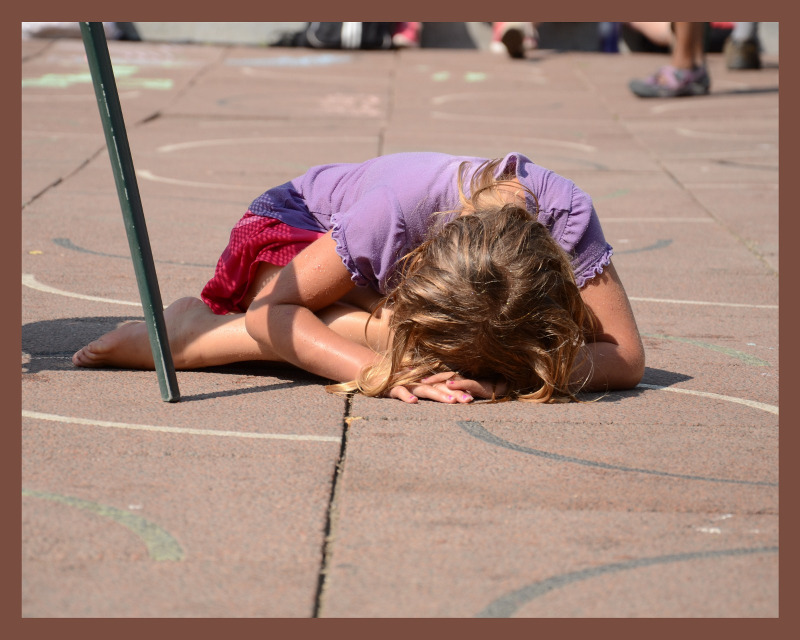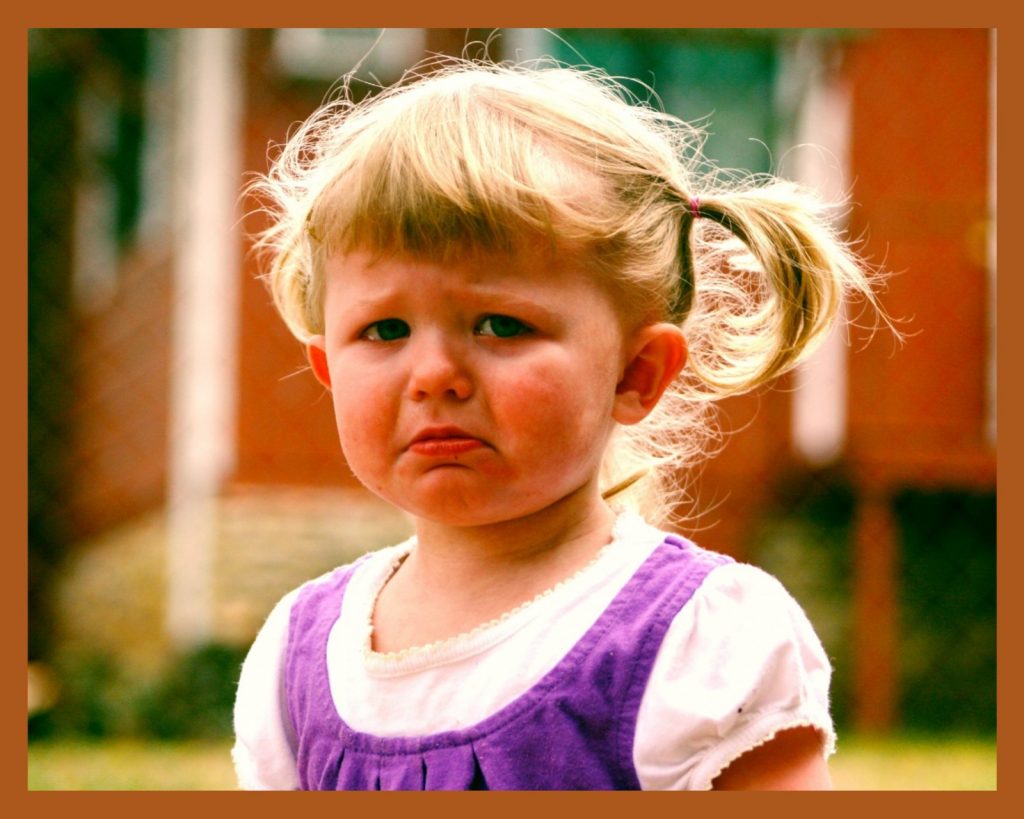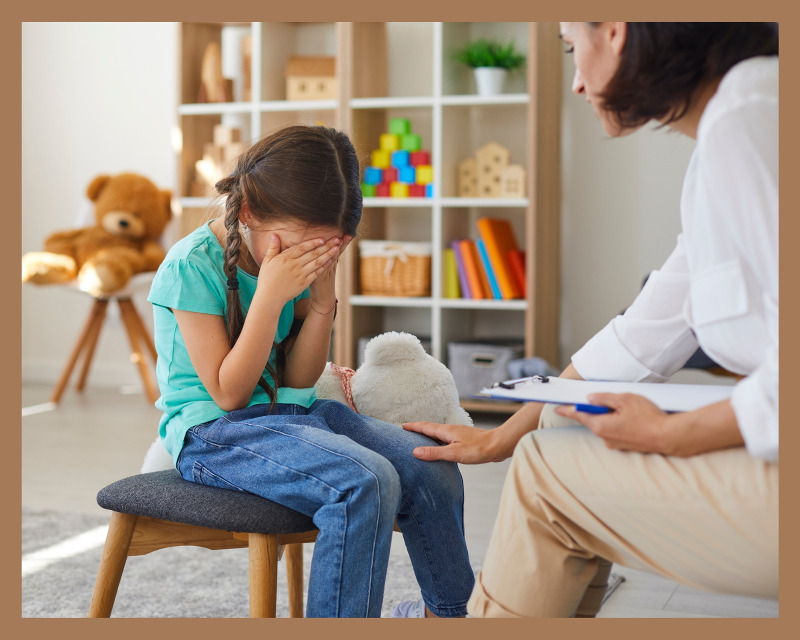Have you ever felt bad for showing grief, fear or anger? that people who show vulnerability are criticized, who do I show straiva (the way real or unreal) constantly?
Welcome to today’s society!
And now I ask you, are your children pressured in the same way?
We live in a society that is very repressive of negative emotions, in which it is constantly repeated to us that the normal state is “to be happy and positive at all times”, something biologically counterproduces, they teach us to suppress unrelated emotions, accept them, and express them assertively; We have become accustomed to showing ourselves in today’s society in a constantly forced way, in which we automatically reject “negative emotions”, already pejoratively categorized as toxic, simply because they are uncomplicated and uncategorized, they are in our genes, They have one function and that is to keep us safe.


Faced with a situation that we feel is dangerous, our brain prepares the body to “protect” ourselves (the heart and respiration speed up automatically)
Our children, like us, cannot separate themselves from their emotions, but also they still do not have enough information or strategies to control them, so it is logical to see them respond with tantrums, disobedience, yelling …
How can we help them manage these “negative” emotions?
Let’s first go over them from a subjective point of view:
Afraid.
The most feared and undervalued emotion, since there is no emotion that ensures our safety more than fear, because its function is to prevent us.
When our body feels this emotion, it is sending us a message to protect ourselves from a possible situation, to prevent possible dangers, known risks.
It’s like canceling an alarm, firing a security guard, leaving the doors of our home open …
Anger
Anger is the emotion that misused can turn against us, it is a defensive weapon that often blocks us and does not allow us to see the situation clearly, sometimes it comes to alert us to abuse or disloyalty (which makes it easier for us to put limits to the situation), and others due to the feeling of frustration in the face of a situation that we do not know how to manage.
“Anyone can become angry, that is very simple. But getting angry with the right person, in the right degree, at the right time, with the right purpose and in the right way, that certainly is not so easy. ” (Aristotle)


Sadness
Sadness appears before the loss of a person, a situation or object, due to helplessness, or through an adverse situation by which we are overcome. Feeling these types of situations is something universal, it is subject to the adventure of living, and it is important to bear in mind that “there is no better way to prolong sadness than trying not to be sad”; Sadness is the emotion that activates the psychological process that allows us to overcome losses, disappointments or failures.


Disgust
The emotion of disgust is a reaction generated by a deep aversion towards something that is especially unpleasant to us, such as bugs, bad food, an unpleasant smell … Another emotion that cannot be ignored in our life, so full of objects and unpleasant substances , as it guides us to avoid something that can be harmful.
Surprise
Surprise is the most ambiguous emotion (since it can be positive and negative depending on the circumstances) and brief (it appears by surprise in a new situation) that we have, it appears as an aid to orient ourselves and we must learn to accept it agilely to be able to manage the situation in weather.
Joy
Joy, the emotion most desired by everyone! It usually comes accompanied by enthusiasm, fun, entertainment, laughter, satisfaction, etc., and favors the balance between mind and body, which allows us to recover from the stress of our daily life and mitigate unpleasant situations.
Already in ancient Greece Plato described it as “the presence of the divine, as a transforming and energizing flow”.


Although this last emotion is the one that is advised to feel fully, the others come to us to help and protect us;
The fundamental thing is to learn to recognize and accept them, never avoid them, because doing so is when you generate new “negative or uncomfortable to feel” emotions, such as anger, which hides behind a deep sadness that has not been able to be expressed.
One of the keys to effectively managing our emotional states is learning to question what we think.It is important to learn to listen to ourselves with affection even if we do not like what we feel, because only by understanding the reason for each emotion experienced can we find the appropriate solutions and heal wounds, and above all, to be able to teach our children how to do it.


Being optimistic is great, but with balance and without forcing the feelings or emotions that we are feeling, because the only thing we do in this way is to silence them and for a limited time while they generate diseases and emotional imbalances.
According to the book The Power of Negative Emotion, “negative” emotions are not as bad as they seem because their objective is to help people in different situations in life, as much or more than the most optimistic states; It has also been shown that people who live life in a positive way at all times are “lazy in thinking”, and on the contrary, people who use all the variety of emotions without labels tend to get more out of each situation.


It is essential to learn to live with our emotions, (good and bad), accept and understand them, since stressful situations over a long time cause the brain neurons responsible for learning to be injured, and in turn the brain undergoes alterations that produce modifications in the hormonal system which causes diseases (all of them have an emotional origin caused by some kind of unmanaged feeling). Negative emotions destroy and positive emotions heal.
And now knowing this, how would you like your children to handle negative emotions?
